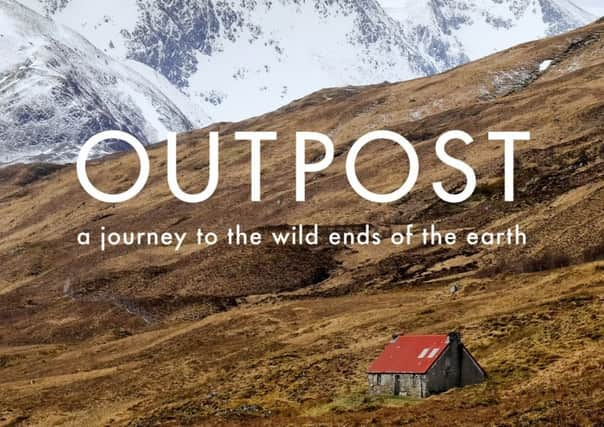Book review: Outpost - A Journey To The Wild Ends Of The Earth, by Dan Richards


As the title suggests, the overarching concept binding everything together is Richards’ desire to visit man-made structures on the edge – “cabins and isolated stations; utilitarian constructions, pared-back buildings of essential first principles”. Each chapter deals with a different outpost or group of outposts, so we visit bothies in the Cairngorms, the (roughly) equivalent Sæluhús network in Iceland, the French lighthouse Phare de Cordouan and the 9th century Japanese temple Sanbutsu-ji, whose Nageire Hall (or Nageire-dō) is perched precariously on stilts on a ledge halfway up a cliff.
As he admits in his introduction, some of the outposts he visits stretch the definition somewhat: the stark but stylish writing pods of the Fondation Jan Michalski pour l’écriture et la littérature in Montricher, Switzerland, for example, aren’t exactly remote (they are only about a kilometre from the shops and cafés the town centre) but his stay there does at least demonstrate that it is tricky to create something that feels like an outpost in a suburban setting.
Advertisement
Hide AdAnother artificial outpost on the itinerary is the Mars Desert Research Station (MDRS) in Utah – a training facility designed to replicate conditions on the red planet, situated in a particularly red bit of desert. In this case the setting really is remote, and there are much more meaningful insights to be gleaned about the kinds of people who are best equipped to survive and thrive in confined spaces far from civilisation.
The chapter on the fire-watching huts of Washington State, and in particular the author’s pilgrimage to the one formerly occupied by Jack Kerouac on Desolation Peak, is brilliantly done: perceptive about Kerouac’s state of mind during his stay and so atmospheric you’ll feel as if you’ve yomped up there yourself. By contrast, the final chapter, which deals with some of the far-flung settlements of Svalbard, feels too diffuse – too many outposts, not enough detail – and the conclusion that all the outposts in the book are linked by the fact that they “allow people to engage with the world inside and out in various ways” feels nebulous-verging-on-meaningless. - Roger Cox
Outpost, by Dan Richards, Canongate, £16.99